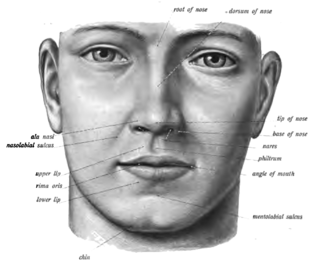Related Research Articles

Joseph John Campbell was an American professor of literature at Sarah Lawrence College who worked in comparative mythology and comparative religion. His work covers many aspects of the human experience. Campbell's best-known work is his book The Hero with a Thousand Faces (1949), in which he discusses his theory of the journey of the archetypal hero shared by world mythologies, termed the monomyth.

Zeus is the sky and thunder god in ancient Greek religion, who rules as king of the gods of Mount Olympus. His name is cognate with the first element of his Roman equivalent Jupiter. His mythology and powers are similar, though not identical, to those of Indo-European deities such as Jupiter, Perkūnas, Perun, Indra, Dyaus and Thor.

In folklore, giants are beings of human-like appearance, but are at times prodigious in size and strength or bear an otherwise notable appearance. The word giant is first attested in 1297 from Robert of Gloucester's chronicle. It is derived from the Gigantes of Greek mythology.

Thoth is an ancient Egyptian deity. In art, he was often depicted as a man with the head of an ibis or a baboon, animals sacred to him. His feminine counterpart was Seshat, and his wife was Ma'at. He was the god of wisdom, writing, hieroglyphs, science, magic, art, judgment, and the dead. His Greek equivalent is Hermes.

In Aztec mythology, Patecatl is a god of healing and fertility and the discoverer of peyote as well as the "lord of the root of pulque". With Mayahuel, he was the father of the Centzon Totochtin.
Eingana is a creator goddess in Australian Aboriginal mythology. Otherwise known as the "Dreamtime Snake", she is the mother of all water animals and humans. She is a snake goddess of death who lives in the Dreamtime. She has no vagina; she simply grew in size and, unable to give birth to the life inside her, had the god Barraiya open a hole with a spear near her anus so that labour could commence. Eingana holds a sinew that is attached to every living thing; if she lets go of one, the attached creature dies.
In Finnish mythology, Tuoni was the god of Tuonela, and darkness personified. He was the husband of Tuonetar. Their children included Kipu-Tyttö, Tuonenpoika, and Loviatar, who were divinities of suffering. When in human form, he appears as an old man with three fingers on each hand and a hat of darkness.
Lithuanian mythology is the mythology of Lithuanian polytheism, the religion of pre-Christian Lithuanians. Like other Indo-Europeans, ancient Lithuanians maintained a polytheistic mythology and religious structure. In pre-Christian Lithuania, mythology was a part of polytheistic religion; after Christianisation mythology survived mostly in folklore, customs and festive rituals. Lithuanian mythology is very close to the mythology of other Baltic nations – Prussians, Latvians, and is considered a part of Baltic mythology.

The philtrum, or medial cleft, is a vertical indentation in the middle area of the upper lip, common to many mammals, extending in humans from the nasal septum to the tubercle of the upper lip. Together with a glandular rhinarium and slit-like nostrils, it is believed to constitute the primitive condition for at least therian mammals. Monotremes lack a philtrum, though this could be due to the specialised, beak-like jaws in living species.

Mythopoeia is a narrative genre in modern literature and film where a fictional or artificial mythology is created by the writer of prose or other fiction. This meaning of the word mythopoeia follows its use by J. R. R. Tolkien in the 1930s. The authors in this genre integrate traditional mythological themes and archetypes into fiction.

Sagittarius (♐︎) is the ninth astrological sign, which is associated with the constellation Sagittarius and spans 240–270th degrees of the zodiac. Under the tropical zodiac, the sun transits this sign between approximately November 23 and December 21. Greek mythology associates Sagittarius with the centaur Chiron, who mentored Achilles, a Greek hero of the Trojan War, in archery.

Gemini (♊︎) is the third astrological sign in the zodiac, originating from the constellation of Gemini. Under the tropical zodiac, the sun transits this sign between about May 21 to June 21. Under the sidereal zodiac, the sun transits this sign from about June 16 to July 16. Gemini is represented by the twins, Castor and Pollux, known as the Dioscuri in Greek mythology. It is a positive, mutable sign. Gemini is associated with the Yang polarity (masculine) in the Yin Yang ancient Chinese concept.

In religion and folklore, hell is an afterlife location in which evil souls are subjected to punitive suffering, often torture, as eternal punishment after death. Religions with a linear divine history often depict hells as eternal destinations, the biggest examples of which are Christianity and Islam, whereas religions with reincarnation usually depict a hell as an intermediary period between incarnations, as is the case in the dharmic religions. Religions typically locate hell in another dimension or under Earth's surface. Other afterlife destinations include Heaven, Paradise, Purgatory, Limbo, and the underworld.

Richard Russell Riordan Jr. is an American author. He is known for writing the Percy Jackson & the Olympians series, about a teenager named Percy Jackson who discovers he is a son of the Greek god Poseidon. Riordan's books have been translated into forty-two languages and sold more than thirty million copies in the US. 20th Century Fox adapted the first two books of his Percy Jackson series as part of a series of films. His books have spawned related media, such as graphic novels and short story collections.
In Greek mythology, Paean, Paeëon or Paieon (Παιήων), or Paeon or Paion (Παιών) was the physician of the gods.
Bungisngis is a one-eyed giant in Philippine folklore. This giant, purported to dwell in Meluz, Orion, Bataan, and Cebu is described as always laughing. The literal meaning of the name Bungingis is derived from the Cebuano word ngisi which means "to giggle".

Norse mythology is the body of myths of the North Germanic peoples, stemming from Norse paganism and continuing after the Christianization of Scandinavia, and into the Scandinavian folklore of the modern period. The northernmost extension of Germanic mythology, Norse mythology consists of tales of various deities, beings, and heroes derived from numerous sources from both before and after the pagan period, including medieval manuscripts, archaeological representations, and folk tradition.
Myth is a folklore genre consisting of narratives that play a fundamental role in a society, such as foundational tales or origin myths. The main characters in myths are usually not humans like gods, demigods, and supernatural figures. However, others also include humans, animals, or combinations in their classificiation of myth. Stories of everyday human beings, although often of leaders of some type, are usually contained in legends, as opposed to myths. Myths are sometimes distinguished from legends in that myths deal with gods, usually have no historical basis, and are set in a world of the remote past, very different from that of the present.
References
- ↑ MacIntyre, John (2005). The Amazing Mom Book. Sourcebooks, Inc. p. 257. ISBN 9781402203558 . Retrieved 13 January 2015.
- ↑ Leeming, David (2014). The Handy Mythology Answer Book. Visible Ink Press. p. 372. ISBN 9781578595228 . Retrieved 13 January 2015.
- ↑ "Eingana: Snake Goddess of Primordial Dreamtime". The Broom Closet. Archived from the original on 13 January 2015. Retrieved 13 January 2015.
